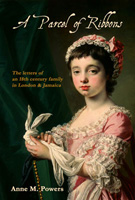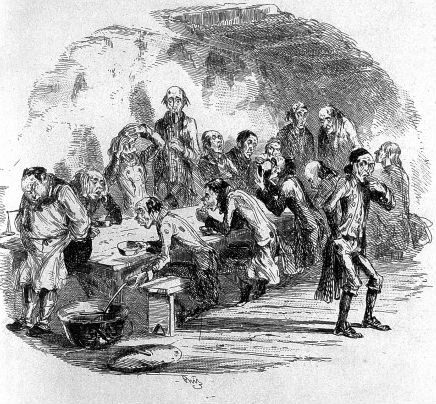We think of crowdfunding as a modern phenomenon. When a family loses everything due to a fire in their home just before Christmas, thousands of people respond to an appeal by their friends on the internet, donating toys, clothes and money. One family were so overwhelmed by the response that they were able to donate a huge number of duplicate toys, wrongly sized clothes and excess food to local charities.
For the eighteenth or nineteenth century family suffering such a disaster the prospects were potentially disastrous. Death of a breadwinner meant that the workhouse loomed.
While researching something else a few days ago in the wonderful British Newspaper Archive, I came across a sad tale, made bearable by the generosity of friends. The Public Ledger and Daily Advertiser for Monday 22 March 1819 carried an advertisement inserted by the friends of a ‘Widow and Ten Children’. Her husband had been a Captain in the West India Service, and formerly a Master in the Royal Navy. Once the Napoleonic Wars ended of course there was no further need for the large numbers of soldiers and sailors who had fought, and many became destitute. A former Naval Captain would probably have been pensioned on half pay, but as the article does not name him we cannot know if this was the case.
Wanting to provide for his family this former Navy man set himself up to trade, but he suffered ‘severe losses at sea’, trade was generally depressed and he became bankrupt.
He had many good friends however, and they set him up with a new ship and he began once again trading with the West Indies, hoping to repay the debts and to be able to support his wife and ten children. One of the children, a boy of six, was described in the newspaper as being ‘an idiot’, the general description at the time for any form of mental handicap. This child was said to be ‘quite incapable of taking the least care of himself’.
Then disaster struck again. The captain fell ‘victim to the fever at Jamaica’ and died. Those familiar with the dangers of yellow fever, malaria, smallpox, dysentery and the like at the time will know it is a sadly familiar story.
Step up Messers Godfree, Greensill, Harmer, Salter, Wilson and Wallis, all at various London addresses, who were advertised as being willing to authenticate the story and receive subscriptions on behalf of the poor widow and her children.
Calling for subscriptions in this way had been facilitated by the rise of a mass market press. Indeed the terrible hurricanes of the 1780s that destroyed plantations and caused huge loss of life in Jamaica, and the reaction to them back in England, had spawned what was probably the first ever mass campaign for donations in the face of a natural disaster.
Let us hope that the readers of the Public Ledger and Daily Advertiser were as generous as those who had responded to the hurricanes and the people who now respond to appeals on social media to help those who have suffered loss and disaster. Sadly, since the widow is not named we will never know what happened to her and her many children, but I think there is a very good chance that she and they were able to avoid Christmas Day in the workhouse.


